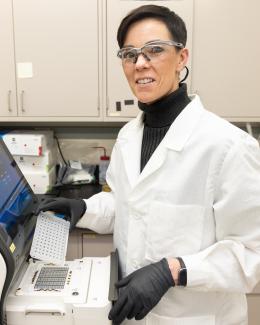Abstract
Cell wall recalcitrance is the major obstacle for plant biomass conversion to biofuels. In this study, we functionally characterized a serine hydroxymethyltransferase (SHMT) from Populus and evaluated its potential for developing lignocellulosic feedstocks. SHMT is an enzyme that plays an important role in cellular one-carbon pathways. However, little is known about its function in plant cell wall-related processes. Among nine SHMT genes in the Populus genome, PtSHMT2 was highly expressed in the developing xylem and was co-expressed with secondary cell wall biosynthetic genes. In Populus transgenic plants overexpressing PdSHMT2, the biomass yield and sugar (glucose and xylose) release were increased whereas the lignin content was decreased. Transcriptomics and metabolomics analyses revealed that genes and metabolites related to secondary cell wall biosynthesis were affected by PdSHMT2 overexpression. Based on the transcription factor binding sites of differentially expressed genes in PdSHMT2 overexpression lines, a total of 27 hub transcription factors were identified. We proposed a regulatory model of action of PdSHMT2 with transcriptional master switches of secondary cell wall biosynthesis. Collectively, these results suggest that PdSHMT2 is a promising candidate for genetic engineering to improve feedstock characteristics to enhance biofuel conversion and reduce the cost of lignocellulosic biofuel production.







